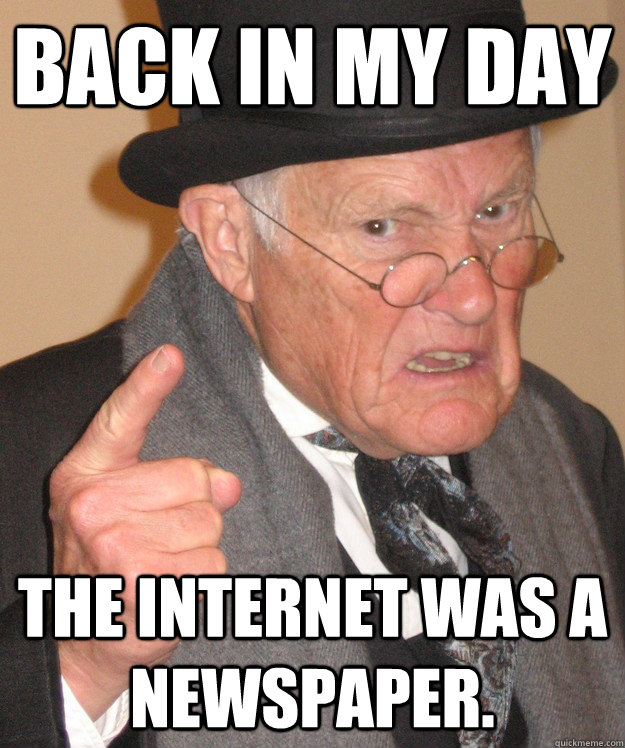 I think we've all seen a pointless website; websites set up as jokes or blogs long forgotten. Most people, especially in the current age of 'share anything and everything as often and as instantly as possible' web usage, don't give a second thought to content left for dead on the inter-webs. An estimated 95% of blogs are abandoned; never to be visited again. Why should it matter? Cost. Most abandoned blogs aren't deactivated. The same is the case for most abandoned web domains. Data storage like that costs money. Lots of money. The size of the internet as a whole is estimated to double about every five years. Can you imagine? From millions of cat memes to tens of millions of cat memes! (I can't be the only sucker for cat memes right?)
I think we've all seen a pointless website; websites set up as jokes or blogs long forgotten. Most people, especially in the current age of 'share anything and everything as often and as instantly as possible' web usage, don't give a second thought to content left for dead on the inter-webs. An estimated 95% of blogs are abandoned; never to be visited again. Why should it matter? Cost. Most abandoned blogs aren't deactivated. The same is the case for most abandoned web domains. Data storage like that costs money. Lots of money. The size of the internet as a whole is estimated to double about every five years. Can you imagine? From millions of cat memes to tens of millions of cat memes! (I can't be the only sucker for cat memes right?) Increases that vast require drastic improvements to servers. Larger servers and more employees cost more money. Some think the added clutter is just something that comes with the territory. The internet is a powerful tool that can get you noticed at little to no cost at all, all from the comfort of your mom's basement in your Simpson's pajamas. It takes out the middle man. Many people who's success originated on a simple online forum or blog probably started over a few times, and likely didn't erase their prior attempts (how about a holler for Blogger eh?). Just like the thousands (probably hundreds of thousands) of photos of my kids that were duds (you know, you take 20 in a row to get the one Facebook worthy photo) that I just can't bring myself to delete, I believe most of the internet is being clung to in sad hopes that it will one day be useful or relevant again. Maybe we'll need it some day. Maybe I'll use it in 10 years. In the meantime what is it costing? For me it's a few expensive external hard drives, full of course, that will probably never be accessed again. On a grander scale, it's probably costing businesses (like Blogger) millions in storage for dormant and now irrelevant data. I believe that just like our landfills, we're going to eventually see this form of digital hoarding become an issue. It should be cleaned up before it's too late. Do you have useless information on the internet? Do you feel it will have a negative effect at some point? Have you ever had old information come back to bite you in your later life or maybe in relation to a job? (a good read on social media and job searching! http://www.digitaltrends.com/social-media/yes-for-the-last-time-your-potential-employers-are-judging-you-by-what-you-put-on-facebook/)
Resources:
http://www.theguardian.com/technology/2013/aug/11/release-us-from-burden-of-internet-clutter
http://www.nytimes.com/2009/06/07/fashion/07blogs.html?_r=0
http://www.labnol.org/internet/internet-size-to-double-every-5-years/6569/
Photos retrieved from:
http://24.media.tumblr.com/tumblr_m59h8iU2QG1rr4faco1_400.jpg
http://www.viceland.com/blogs/de/files/2010/09/computer_dump_large.jpg


